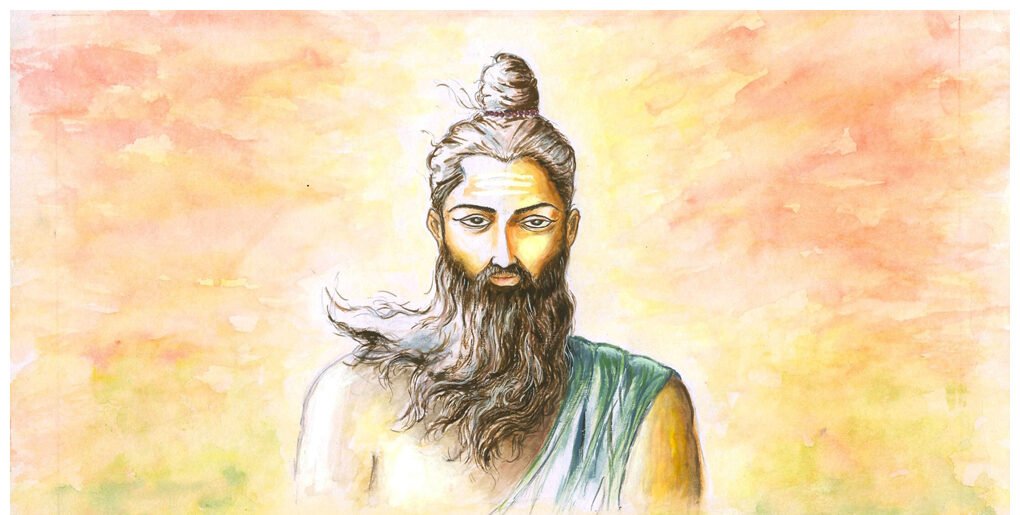Explore Gotras

Kapya: A Revered Sage in Hindu Tradition
Sage Kapya is a significant figure in the ancient Hindu tradition and Vedic scriptures. While not one of the most prominent sages in the epics, his contributions to the spiritual practices and dharma of his time are well-recognized. He is associated with certain texts and rituals, and his name is mentioned in the context of Vedic knowledge, ritualistic practices, and spiritual teachings. Kapya’s legacy is also connected with the Kapya Gotra, a lineage that continues to be respected within the Hindu community.
1. Origins and Lineage
- Kapya in the Rishi Tradition:
- Sage Kapya is recognized as one of the ancient sages in Vedic tradition who upheld dharma and was a custodian of spiritual wisdom. He is associated with the Kapya Gotra, which signifies his important role in preserving Vedic teachings and ethical values.
- Kapya in the Rishi Tradition:
- Parents:
- Details about Kapya’s parentage are scarce in most texts, but he is considered to be a respected sage who was an adherent to the principles of righteous living and spiritual knowledge. His lineage, through the Kapya Gotra, emphasizes his contributions to the Vedic way of life.
- Parents:
- Association with Gotra:
- The Kapya Gotra is a revered lineage, and those who belong to it are thought to follow the spiritual teachings and ritual practices that Kapya espoused. This Gotra is significant in the context of spiritual discipline and ethical living.
- Association with Gotra:
2. Kapya’s Role in Hindu Mythology
- Kapya’s Contributions:
- Though not as well-known in the larger mythological narratives, Kapya is considered a sage of great spiritual depth and ritual expertise. He is associated with Vedic rituals and teachings on dharma that emphasize self-restraint, purity, and devotion to divine principles.
- Kapya’s Contributions:
- Stories in Hindu Texts:
- Sage Kapya appears in minor mentions in various Vedic texts and Purana scriptures, where he is associated with spiritual guidance and ritual knowledge. His presence is felt in the context of maintaining dharma through sacred rituals and guiding others in their spiritual journeys.
- Kapya is respected for his commitment to purity and meditative practices, which were central to the spiritual practices of his followers.
- Stories in Hindu Texts:
3. Kapya’s Contribution to the Vedic Tradition
- Vedic Knowledge and Teachings:
- Sage Kapya’s primary contributions lie in his role as a custodian of Vedic wisdom and the performer of sacred rituals. He is believed to have had a deep understanding of Vedic mantras, yajnas (sacrificial rites), and the correct methodologies of ritual worship.
- His teachings on the sacred fire (Agni) and the role of rituals in maintaining the cosmic order were foundational in his time. Kapya’s influence in ensuring that Vedic rituals were performed correctly helped preserve the integrity of Hindu spirituality across generations.
- Vedic Knowledge and Teachings:
- Teachings on Dharma and Ethics:
- Kapya’s teachings on dharma focused on the importance of righteousness, discipline, and piety. His moral guidance helped cultivate a society based on ethical conduct and devotion to the divine. He emphasized that true spirituality comes from purity of action, thought, and word.
- His ethical teachings were rooted in the belief that living a life in alignment with cosmic order is essential for both individual and collective well-being.
- Teachings on Dharma and Ethics:
4. Kapya’s Role in Hindu Tradition
- Role as a Spiritual Guide:
- Kapya’s most important role in Hindu tradition is that of a spiritual teacher and ritual leader. He is regarded as a sage who passed down knowledge of spirituality, dharma, and Vedic rituals to his disciples. His teachings were often concerned with the observance of sacred rites, meditative practices, and ethical living.
- Role as a Spiritual Guide:
- Influence in Hindu Texts:
- Kapya’s teachings and role as a Vedic teacher have had an impact on the development of Hindu philosophy and the preservation of Vedic rituals. While not featured as prominently as other sages in epic texts, his legacy is influential in the spiritual practices of those who follow the Kapya Gotra.
- Influence in Hindu Texts:
5. Kapya’s Legacy in Hinduism
- Spiritual and Cultural Influence:
- The Kapya Gotra, which traces its roots to Sage Kapya, continues to play a significant role in Hindu society. Members of this Gotra are expected to follow the teachings of spiritual discipline, ritual purity, and ethical conduct.
- Kapya’s legacy lives on in the continued practice of Vedic rituals and the adherence to moral principles that were central to his life and teachings.
- Spiritual and Cultural Influence:
- Gotra and Marital Traditions:
- The Kapya Gotra holds an important position in the marriage customs of Hindu society. As with other Gotras, it is considered inappropriate for individuals from the same Gotra to marry, as they are considered to belong to the same spiritual family.
- Gotra and Marital Traditions:
6. Kapya’s Influence in Hinduism
- Preservation of Vedic Knowledge:
- Sage Kapya played a significant role in preserving Vedic wisdom and ensuring the continuity of ritualistic traditions. His teachings have helped maintain the sacred practices that form the foundation of Hindu spirituality.
- Preservation of Vedic Knowledge:
- Impact on Hindu Thought:
- Although Kapya is not a central figure in the epic narratives or major philosophical texts, his influence on spiritual discipline, ritual practice, and the dharma of his time contributed to the moral framework that guided his followers.
- Impact on Hindu Thought:
7. Conclusion
Sage Kapya is a significant yet lesser-known figure in Hindu mythology and Vedic tradition. His contributions to Vedic rituals, dharma, and spiritual guidance have had a lasting impact on Hindu practices and continue to resonate through the Kapya Gotra. Though he may not be widely recognized in the epics, Kapya’s dedication to spiritual purity, ethical living, and the preservation of sacred knowledge has made him an enduring part of Hindu history.
